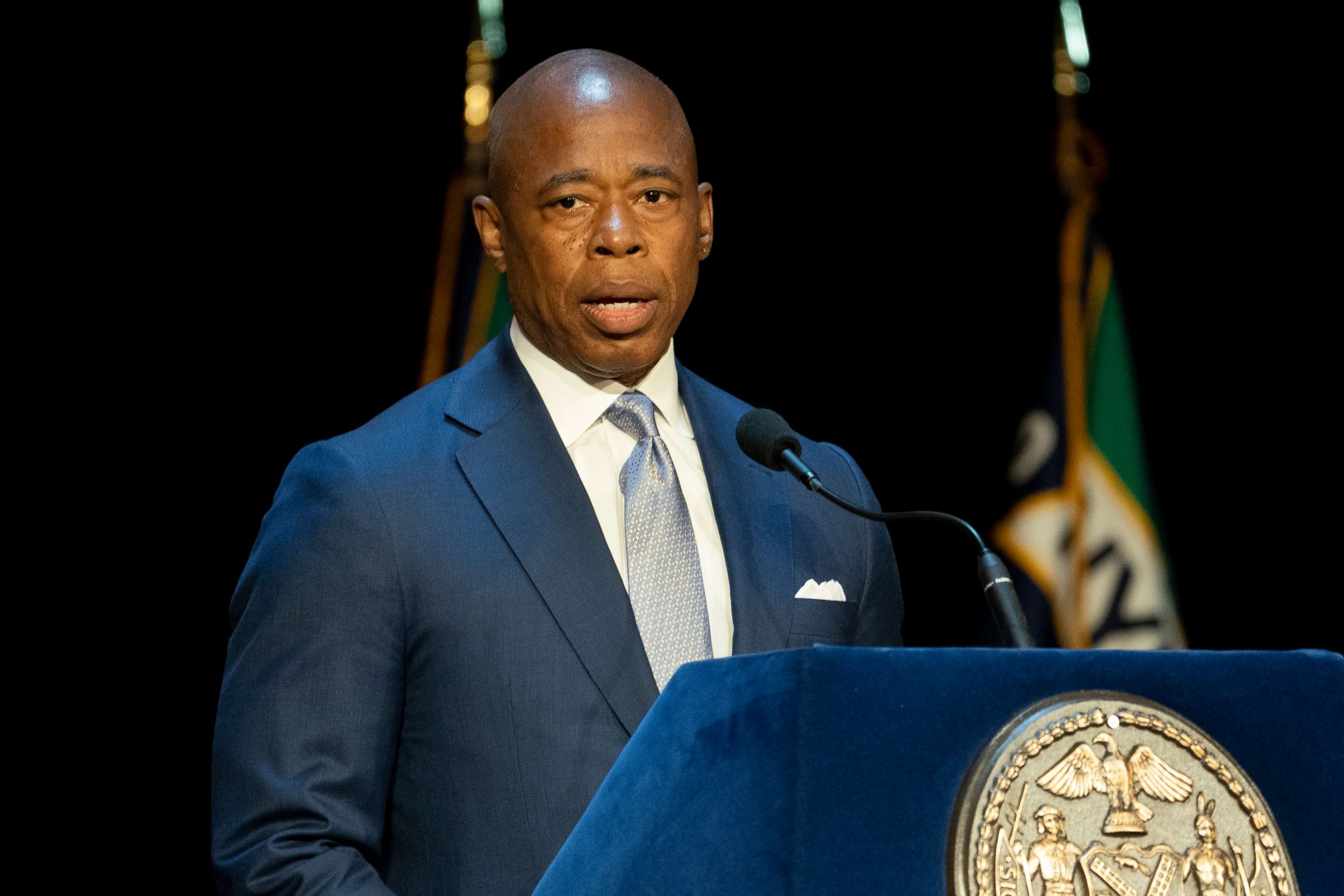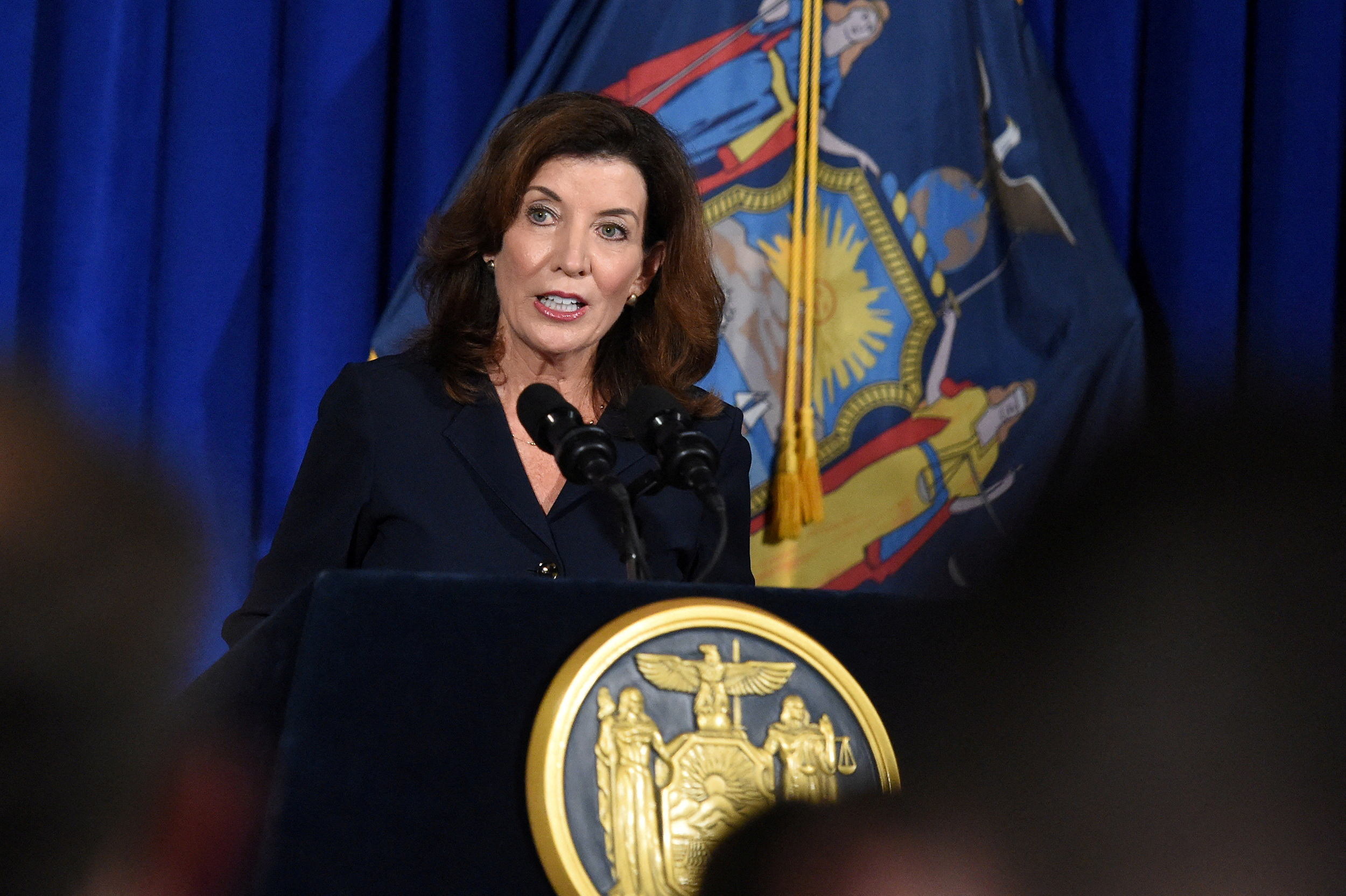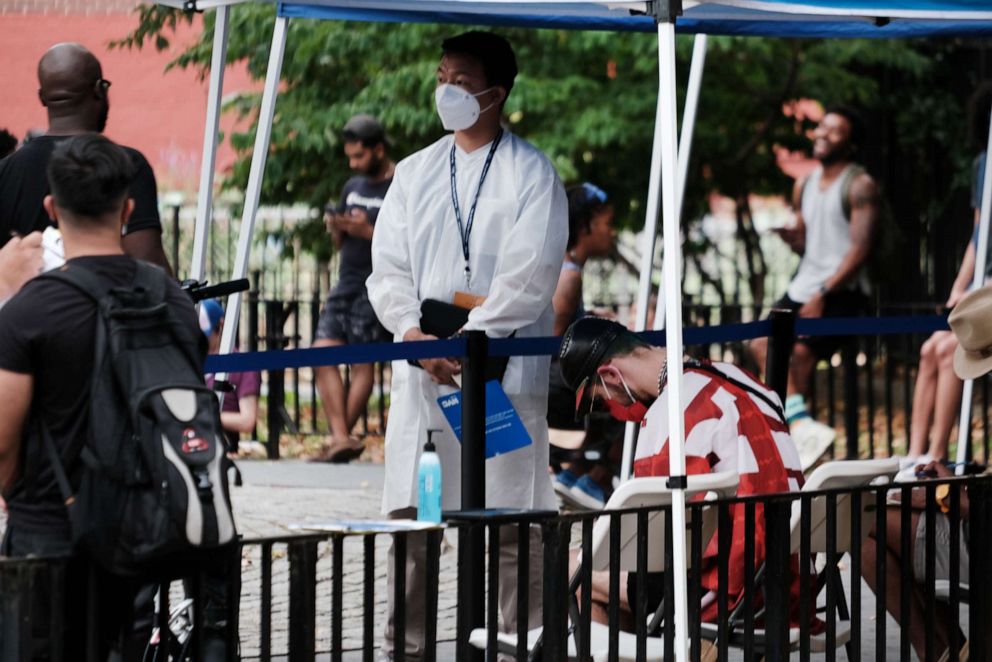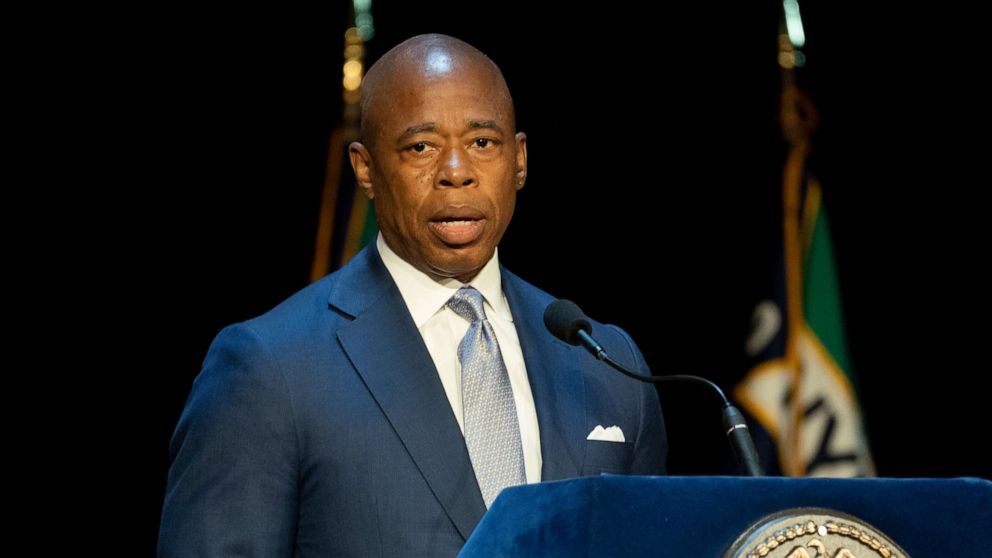New York officials declare monkeypox an emergency
New York officials have declared monkeypox an emergency, with New York City the "epicenter of the outbreak."
On Saturday, New York City Mayor Eric Adams and the city's Department of Health and Mental Hygiene commissioner, Ashwin Vasan, declared monkeypox a public health emergency.
About 150,000 New Yorkers are currently at risk of exposure in the city, which officials are calling the "epicenter of the outbreak."
The city is working with "every level of government" to receive more doses of the monkeypox vaccine, slow the spread of the virus and keep New Yorkers safe, the officials said.

The announcement comes a day after New York Gov. Kathy Hochul issued an executive order in response to the state's growing outbreak, declaring it to be a "disaster emergency."
"After reviewing the latest data on the monkeypox outbreak in New York State, I am declaring a State Disaster Emergency to strengthen our aggressive ongoing efforts to confront this outbreak," Gov. Hochul said. "More than one in four monkeypox cases in this country are in New York State, and we need to utilize every tool in our arsenal as we respond. It's especially important to recognize the ways in which this outbreak is currently having a disproportionate impact on certain at-risk groups. That's why my team and I are working around the clock to secure more vaccines, expand testing capacity and responsibly educate the public on how to stay safe during this outbreak."

There are over 5,100 confirmed cases of monkeypox in the U.S., according to data by the Centers Centers for Disease Control and Prevention.
New York has the highest reported cases of monkeypox, according to the CDC. There have been 1,383 reported cases of monkeypox in New York as of Friday, with most -- 1,289 -- in New York City, according to state data.
The state's executive order will allow the state to respond more quickly to the monkeypox outbreak and enable health care workers to help get more New Yorkers vaccinated.
Hochul's declaration came a day after monkeypox was considered an "imminent threat" to the public health by New York state's health commissioner, Dr. Mary Bassett.
Commissioner Barrett said in a statement that the designation meant that "local health departments engaged in response and prevention activities will be able to access additional State reimbursement, after other Federal and State funding sources are maximized."

Monkeypox is primarily spread from person to person contact through close and physical contact. A fever, muscle ache, chills, headache and fatigue are some of the symptoms. Sores and painful rashes also develop on a person's body.
Most cases in the U.S. have been reported among the gay, bisexual and other men who have sex with men community and related to male-to-male sexual contact. Though health officials have repeatedly stressed that the virus can affect anyone who has close contact with people who have monkeypox. Those with weakened immune systems, pregnant people and children under the age of 8 may be at heightened risk for severe outcomes, according to the CDC.
"Every American should pay attention on monkeypox," Health and Human Services Secretary Xavier Becerra told reporters Thursday. "Monkeypox is not COVID, but it is contagious. It is painful and can be dangerous."
The World Health Organization declared the monkeypox outbreak a public health emergency of international concern last week.
ABC News' Victoria Arancio and Matt J. Foster contributed to this report.




